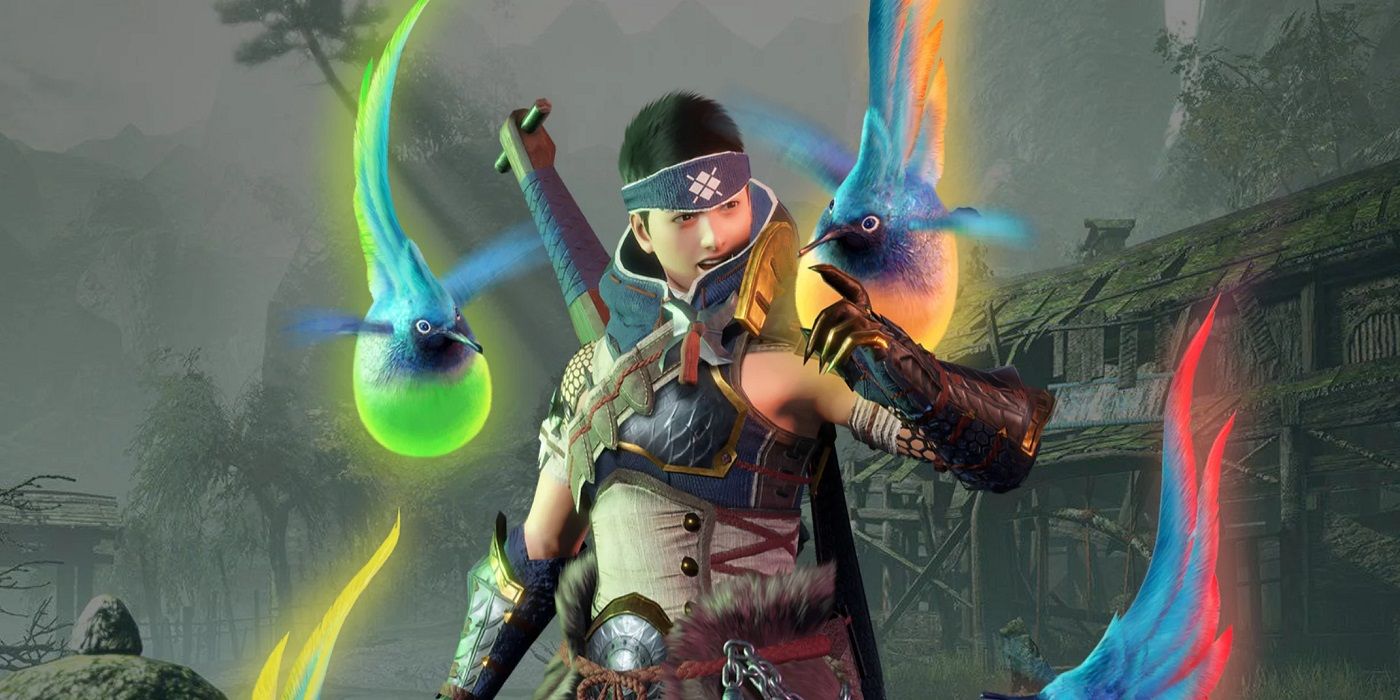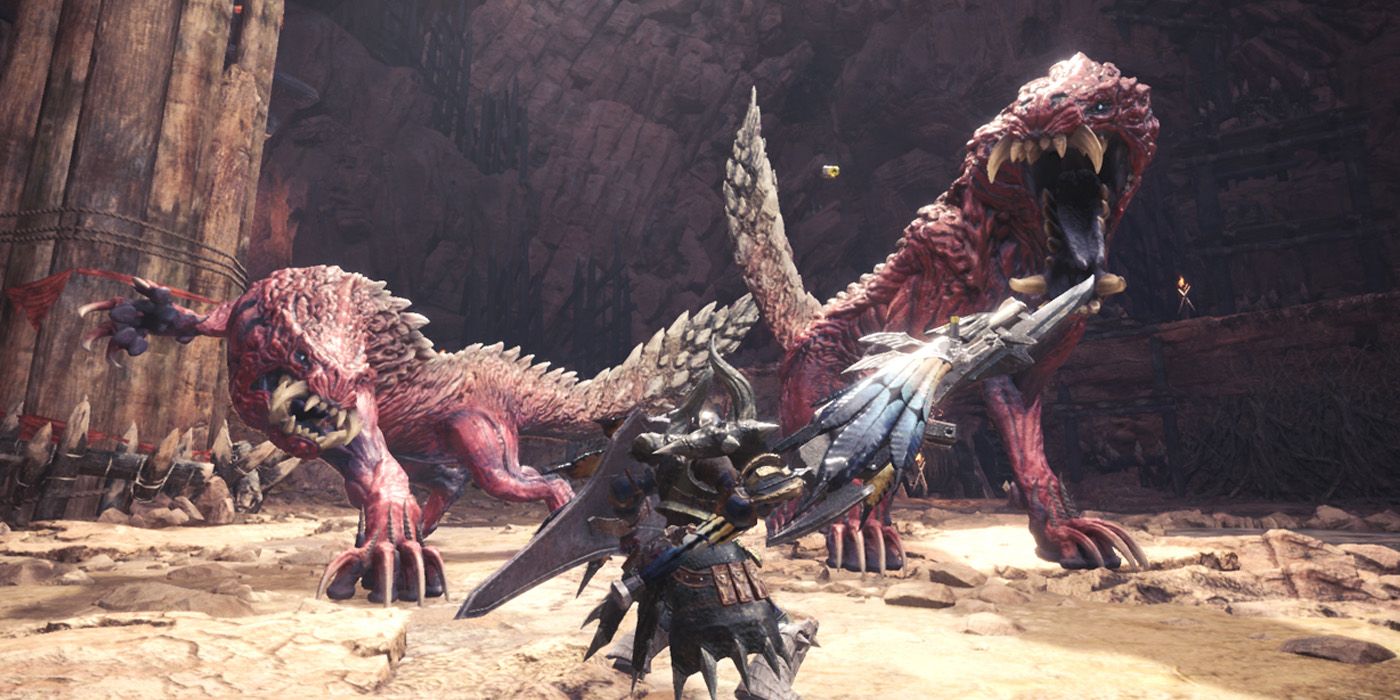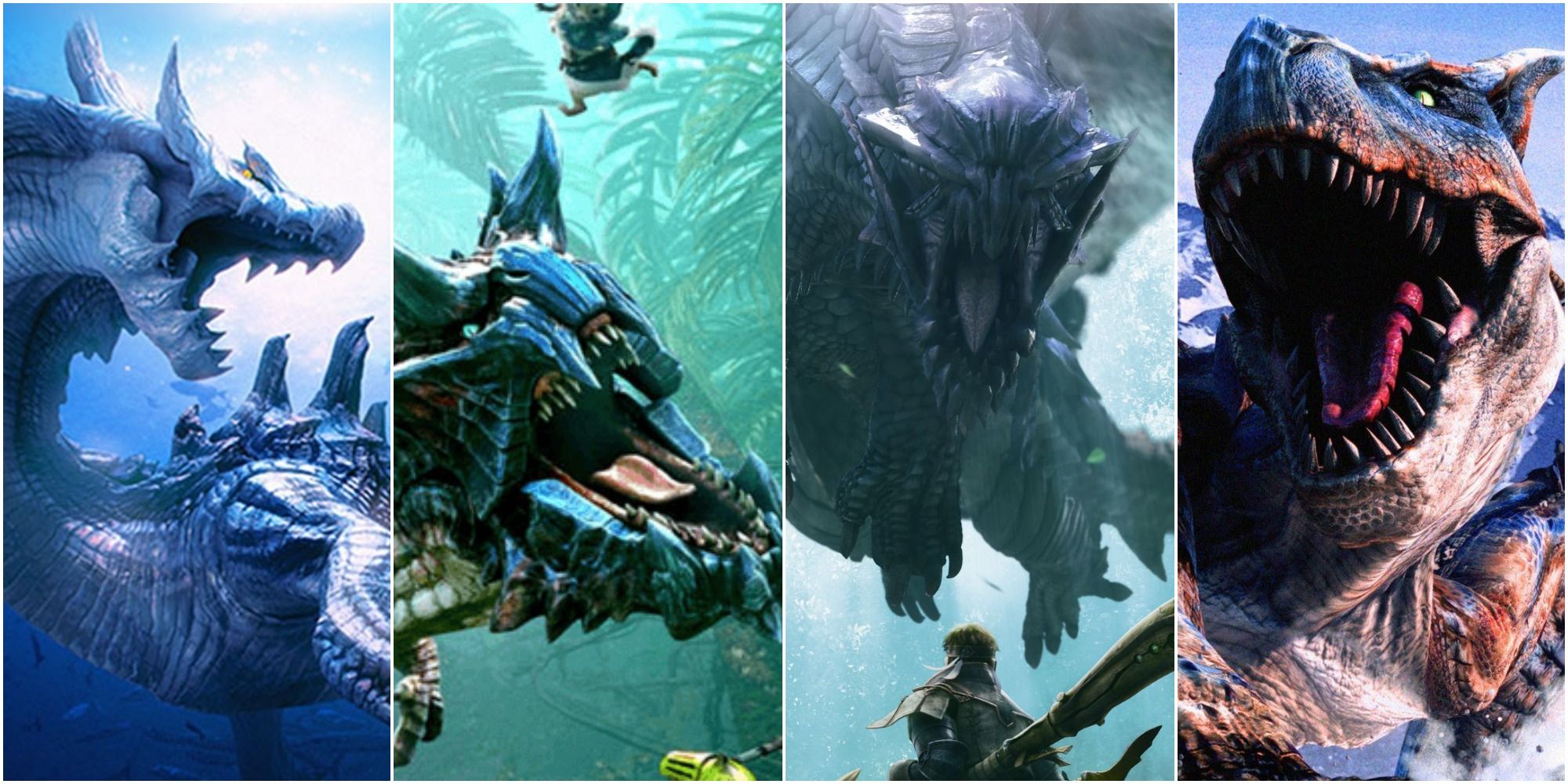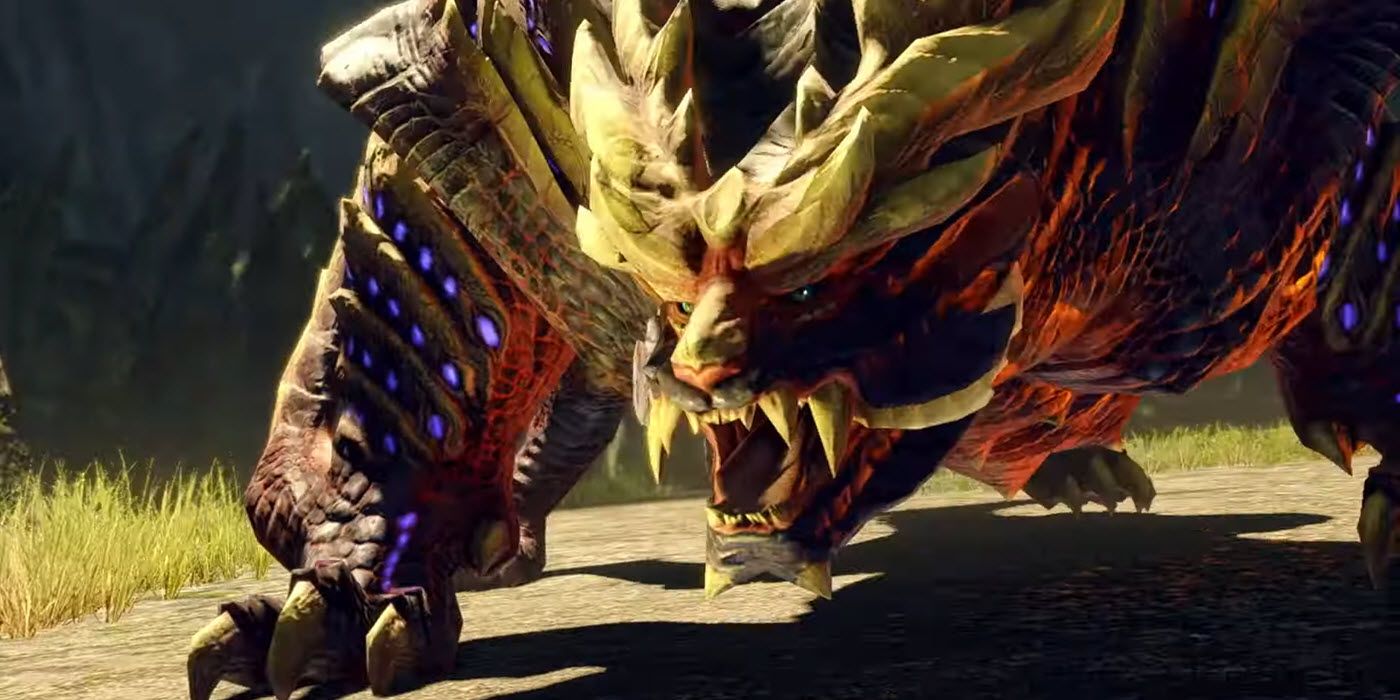The upcoming release of Monster Hunter Rise will be a pivotal moment for Monster Hunter fans, perhaps just as pivotal as the release of Monster Hunter World in late 2017. While World brought on a staggering number of brand new players to the series, Rise will be a return to some of Monster Hunter's oldest roots. As a portable game, Rise will be similar to every other Monster Hunter game before it aside from World, but even so, the millions of new players that World garnered won't have ever played a portable Monster Hunter game before.
Monster Hunter World gained its popularity by doing away with a lot of the identity of former Monster Hunter games, but it still made compromises to appeal to fans of the classics. Monster Hunter will no doubt continue to be a massively popular series after what World did to bring it to Europe and the US, but if Capcom is to continue capitalizing on that newfound popularity, it should split the franchise into two series: one that caters to a more popular audience on mainline consoles like PS5, PC, and Xbox, and one that continues the classic traditions of the older series on portable platforms like the Switch.
Monster Hunter World Changed MonHun Forever
The release of Monster Hunter World was a turning point for the Monster Hunter franchise. It was the first MonHun game on mainline consoles rather than portable systems, it focused in on streamlining hunting and combat, and it made huge quality of life changes that endeared it to an entirely new, and massive, audience. Prior to World, Monster Hunter was a series that enjoyed most of its popularity in Japan and other Asian countries, but World made countless changes to ensure that it would be able to take Europe and the US by storm as well.
With so many games in the Monster Hunter franchise prior to World, Capcom had plenty of experience to draw from. That's why each of the game's 14 weapons feels finely tuned and well-balanced, the monsters are so numerous, and the mechanics are so varied and deep. What Capcom didn't emulate was the way that older MonHun games had much more byzantine rules, a steeper learning curve, often clunky portable controls, and areas divided up into separate zones, each with its own loading gate. Almost all of the changes made in Monster Hunter World were designed to appeal to a global audience, and it was a great success.
Harvesting, crafting, equipping items, eating meals, preparing supplies, traveling through an open world, and entering multiplayer co-op are just some of the systems that were simplified for Monster Hunter World, and even then they are still relatively complex. The reason that previous Monster Hunter games did poorly worldwide is that they were too complicated and were always on portable systems, which are favored far more in Japan than in the rest of the world. Monster Hunter World changed all that.
Monster Hunter Rise seems to be trying to bridge the gap between new quality of life improvements and old portable sensibilities, but splitting into two separate series may be the only way to please all of Monster Hunter's audience.
Future Monster Hunter Games Should Streamline Even More
The main complaints that newer fans had about Monster Hunter World were still largely centered around quality of life, despite the improvements. Even after drastic simplification from the older games, many of the mechanics were strange, confusing, and overly complex. There is a certain level of charm that the game has due to its odd idiosyncrasies, but at some point, they begin to overshadow enjoyment when one has to look up too many tutorials online. The other major stumbling block Monster Hunter World had for fans more accustomed to Western game design was its grindyness.
Games with grind-heavy gameplay loops continue to be popular in the US and Europe; Destiny is a prime example. However, Monster Hunter World has a type of grind on an entirely different level once players enter the late game. Farming countless tempered elder dragons, and the luck needed to get certain gems or materials for augmentations, becomes a drag even for the most dedicated players. Unfortunately, much of the late-game content and limited-time events have a difficulty threshold that is impossible to surpass without endgame equipment. That ultimately means that it is nigh impossible for more casual players to simply hop on and try out a new event or content drop without doing some serious grinding first.
For Western audiences, new Monster Hunter games should lean even further into the quality of life improvements and simplification that World began. Cutting out much of the late-game grind, focusing even more on co-op open world exploration and a story-driven campaign, and simplifying prep mechanics even further would go a long way towards satisfying the new generation of fans. World was a careful balance between new sensibilities and keeping diehard fans happy. New Monster Hunter games should cater even more to the newer, larger audience.
Monster Hunter Rise looks like it will be yet another balancing act. It will keep the open world and many of the streamlining improvements of World, but it is a return to a portable platform and will almost certainly feature the same level of grind that World did. It's a good problem to have, but Monster Hunter now has to cater to two sets of fans that expect very different things out of the series. Newer fans love the combat, exploration, setting, unique character of the game, and yes, a bit of the grind too; but are less keen on the extreme grind and complexity than the older fanbase. The solution, then, is to start making two types of games, rather than having each new game compromise on conflicting design ideals, failing to completely satisfy either group.
The Older Style Still Deserves Attention
Many fans who were introduced to Monster Hunter through World were likely extremely excited to see Rise coming out for Switch- but also probably experienced a tinge of disappointment that they wouldn't be getting another big, full-fat sequel to World on the new generation of consoles. There's still plenty of time in this console generation's lifecycle, though, and this isn't to say that the older style of Monster Hunter games, or portable Monster Hunter games, should cease to exist. The classic titles were great, and there are plenty of reasons to be excited that Rise will be on a portable platform.
Portable consoles are better suited for the grind-heavy experience of classic MonHun games to begin with. On a portable system like the Switch, it's easy to pop in and complete a few collection objectives or an easier hunt during a few minutes of free time on the go, then sit down for a bigger hunt at home. Those side objectives become far more of a nuisance on home consoles and PC, when they act more as chores to complete during normal playtime than something to do during a free moment. On portable, certain aspects of the grind end up being a benefit to the long-term playability of the game, rather than something that burns people out.
That's to say nothing of the fans who prefer a more classic style. For all the new fans who discovered a love for Monster Hunter World's huge open environments, dynamic hunts and fights, smooth combat, and beautiful visuals, there were also those who missed the ability to take the game anywhere with them, and appreciated some of the finer points and complexities of deeper game systems. For those fans, they got over the games' steep learning curve years ago, only to see the depth they'd come to appreciate wiped out in a major title aimed at a totally different audience.
There's room for both types of fans to enjoy compromise titles like Monster Hunter Rise, but it's impossible to avoid the fact that games built for a broader, more casual audience using sit-down consoles and PCs need to cut back on their most grindy elements and offer more accessibility. Meanwhile, the Switch is a perfect home for a portable Monster Hunter game, and on a different platform with a slightly different playerbase, Monster Hunter games should cater to that context.
A followup to Monster Hunter World on the newest console generation, with the improvements in graphics, world size, and complex monster behaviors that better hardware might allow would certainly be welcome in the eyes of many fans. At the same time, portable MonHun titles like Rise still have their place, and some fans who were introduced through World will probably become hooked on the portability of its sequel. After the success of World, it's unlikely that Capcom will neglect to release another major MonHun game for the PS5 and Xbox Series X, but if and when they do make one, it should go even further in the direction World started.
Monster Hunter Rise will be released on Switch on March 26, 2021 and on PC in 2022.




